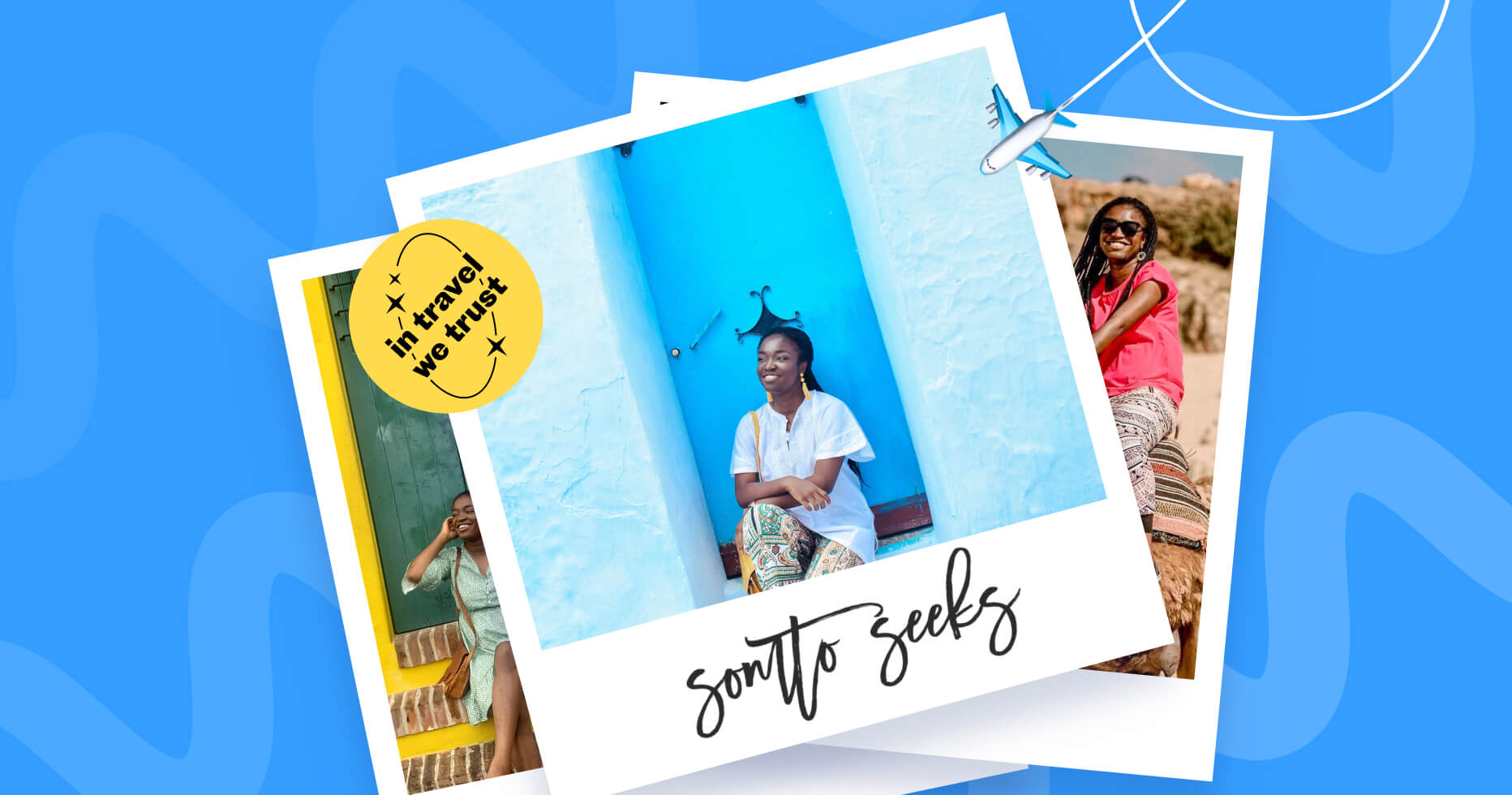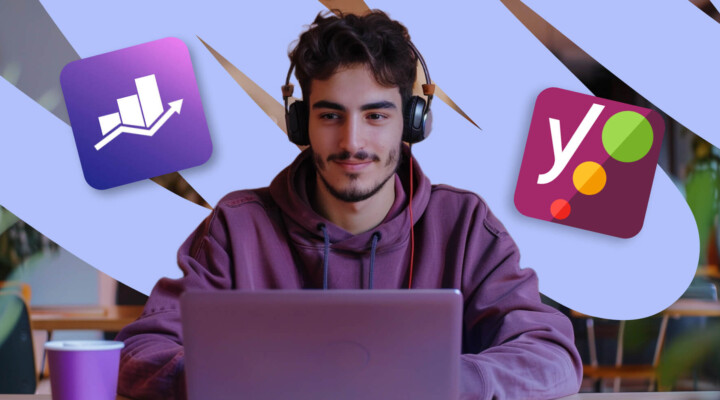Hi, Somto!
I’m very glad that you could join us for an interview. To get things started, could you please introduce yourself and tell us about your current projects?

Thank you for having me. My name is Somto Ugwueze. I am a travel writer and entrepreneur. I run Somto Seeks, a solo female travel blog, which I launched in 2017, and Grow with Somto, a digital marketing company that assists travel brands and creators to grow their traffic and income.
I am an enthusiastic traveler who has visited more than 40 countries to date.
My motivation stems from my desire to lead an extraordinary life, which for me, encompasses three pillars: travel, freedom, and purpose. I am passionate about exploring the world and immersing myself in new cultures.
The freedom to manage my time and choose the projects I work on is essential to me. Additionally, I value having a purpose and working towards something greater than myself. On September 1st, I celebrated six years of building a business empire that includes online courses, a travel blog, and most recently, a book.
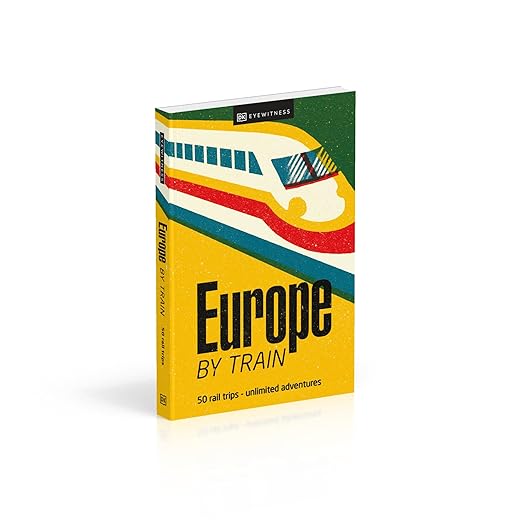
I recently authored a chapter on traveling in Spain in Europe by Train, published by DK Eyewitness. This book features 50 train routes throughout Europe and marks my debut as an author—something that I’m incredibly proud of!
I’ve also been a speaker at travel conferences, such as TravelCon, the Women in Travel conference, and the Travelpayouts Travel Affiliate Summit.
Currently, I am working on several projects that are all tied to my passion for travel and exploration. Above all, I am committed to giving back to the community.
Traveling while earning money and enjoying freedom is indeed a common dream, but achieving it is a challenge for many.
Could you share how you made the decision to quit your job and start travel blogging?
Did you have any savings set aside or a specific plan for generating income while on the road? I think many people find it daunting to leave a stable job and start traveling.

Certainly, it was a significant challenge. The decision came to me when I moved to Spain for a year to teach English. While sitting in my apartment in Madrid, I found myself contemplating what I truly desired from life. During this period, I discovered several travel blogs managed by black women. Seeing people who looked like me, running their own travel blogs, traversing the globe, and earning a living from it, was incredibly empowering. It also sparked an idea within me: What if I could do something similar?
Certainly, it was a significant challenge. The decision came to me when I moved to Spain for a year to teach English. While sitting in my apartment in Madrid, I found myself contemplating what I truly desired from life. During this period, I discovered several travel blogs managed by black women. Seeing people who looked like me, running their own travel blogs, traversing the globe, and earning a living from it, was incredibly empowering. It also sparked an idea within me: What if I could do something similar?
Upon returning to the States, I secured a job at a nonprofit, but the concept of starting my own travel blog incessantly lingered in my mind. After taking some blogging classes and conducting extensive research on the process, I decided to take the plunge. I knew that, if I didn’t at least attempt it, I would be filled with regret. So, I committed to making my blog my full-time occupation. In September 2017, I fully embraced this decision.
It was daunting. There were no guarantees or certainties, nor did I have any family members who had embarked on a similar journey. It was a courageous step to invest everything into my blog. However, in retrospect, it was one of the best decisions I’ve ever made. Despite the lack of guarantees, I firmly believe that we should pursue our dreams, irrespective of how intimidating they might seem. After all, nothing in life comes with a guarantee.
Initially, learning about SEO and content marketing as well as acquiring the necessary skills, such as driving website traffic and creating popular and engaging content, was challenging. But as time went on, I began to relish mastering these skills. Gradually, I saw my traffic grow and even started teaching others how to increase theirs.
To those interested in traveling and working independently, I say, take the leap! You never know what lies ahead.
Do you think it is possible to combine travel blogging with a 9-to-5 job, or is it necessary to choose one or the other?

Combining travel blogging with a full-time office job is definitely feasible. I know several people who are full-time employees that also run successful travel blogs. In fact, when I started my own travel blog, I was also working full time. So, for a few months, I juggled both my blog and my full-time job. While challenging, it is certainly doable. The key is to allocate specific time for your blog—perhaps two hours a day after work or during weekends.
There are also certain advantages to maintaining a full-time job while travel blogging. For instance, the steady income can be used to hire assistants to manage your blog. In fact, balancing a full-time job with travel blogging could potentially expedite the growth of your blog.
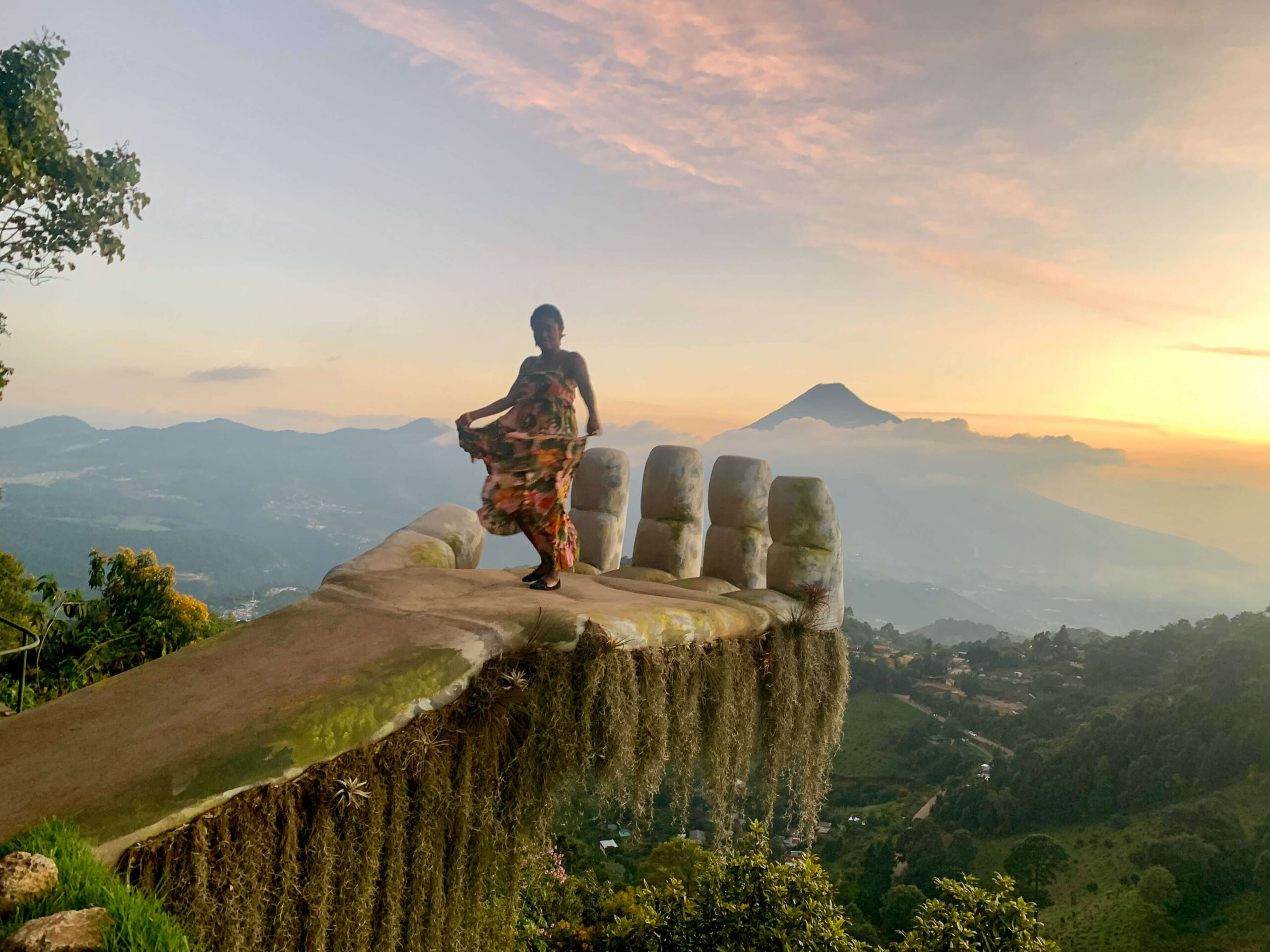
Could you shed some light on how you currently organize your workday?

Over the years, I’ve experimented with various work schedules. For instance, I’ve tried working on Monday, Wednesday, and Friday, while taking Tuesday and Thursday off. I’ve also tested working four hours a day, every single day of the week, and even working just three days a week, including weekends. I’ve tried numerous variations.
Initially, I worked extensively, clocking in about 80 hours a week producing content and managing my blog.
However, as time passed, I was able to reduce these hours significantly. Now, I work daily, but not for 80 hours a week. I work approximately five hours a day because I genuinely enjoy what I do and am passionate about it. Despite this, I believe it’s crucial to find a balance between work and rest, as I’ve experienced burnout in the past from working those 80-hour weeks.
At that time, I dealt with considerable fatigue. This was quite unhealthy, so I knew it wasn’t tenable to continue working at that pace. One strategy that has benefited me is hiring people to assist with managing my blog and business, and outsourcing as much work as possible that doesn’t require my direct involvement. This allows me to concentrate on the most productive parts of my blog.
I would advise hiring help as soon as it is feasible to do so. I wish I had brought on additional help earlier to free up my time to focus on the most productive elements, rather than handling aspects like formatting blog posts and other menial tasks. It’s important to pace oneself and avoid trying to do everything simultaneously, as this can lead to burnout, which is something I experienced at one point in my journey.
Hire help as soon as you can. You can find freelancers on platforms like Fiverr or Upwork, who can assist with emails, formatting blog posts, managing your social media presence, and other tasks that could consume a lot of your time. Remember, you don’t have to do everything yourself, as it can truly take a toll on you.
It’s very difficult to start a blog from scratch without knowing anything about it. Were there moments of frustration when you first started blogging?
If so, how did you find the energy and motivation to keep going and not shut down your blog?

Yeah, it was quite a challenge in the beginning, particularly learning SEO and how to write engaging content. I attended numerous conferences, such as TravelCon, the Women in Travel Summit, and even non-blogging business conferences in an effort to absorb as much knowledge as possible about being an entrepreneur, not just a blogger. After all, running a blog is essentially operating a blog-based business. As such, there was a steep learning curve.
The first task I undertook was teaching myself how to build a website, which took me roughly four months to assemble and launch. Then, there were various technical issues to navigate, including having my site hacked in the early stages of the process, which was incredibly frustrating.
However, I kept going by consistently keeping my mission and vision for my life at the forefront of my mind. Even when things became challenging, I always remembered what was truly motivating me: my desire for an extraordinary life filled with travel, freedom, and purpose. This helped me persevere through the difficult moments when I felt like giving up and started questioning if all the work was worth it.
But I held onto my “why”, and that kept me motivated. In the beginning, I wasn’t attracting a lot of traffic to my website. I remember that, in December 2017, I only recorded about 42 total page views for the entire month, which was quite discouraging. However, I persisted and continued learning. Eventually, I came to understand that this was a marathon, not a sprint.
So, keeping my “why” at the forefront of my mind helped me push through the initial slow phase, the technical obstacles, and the steep learning curve.
Your blog is dedicated to the topic of solo female travel. Could we touch on some of the advantages and disadvantages of solo travel?

That’s an excellent question. I’ve been a solo traveler since 2015, when I moved to Spain by myself and spent a year solo traveling around Europe. I believe that solo travel is a potent tool for personal development. When you’re alone, you discover your true capabilities and strengths, which may not be as apparent when you’re with others. It fosters independence and self-reliance, while building up your self-confidence.
Before I started traveling solo, I was fairly shy and reserved. However, during my travels, I found myself becoming much more sociable, interacting with people, and making many friends. I truly believe that solo travel can help you break out of your shell and significantly boost your confidence.
Of course, there are downsides to travelling on your own, such as safety concerns. When you’re alone, you could potentially become a target for thieves or individuals with ill intentions. However, there are various ways to protect yourself and stay safe while traveling. For instance, always let people know where you’re going, keep your family updated on your whereabouts, and consider joining a travel group.

Even when I travel solo, I often meet people and prefer spending time with them rather than being alone for the entirety of my trip. So, traveling solo doesn’t necessarily mean being alone, unless you truly wish to be. Overall, I believe the benefits of solo travel outweigh the downsides. There are strategies to ensure safety, opportunities to meet people, and plenty of resources for female solo travelers these days.
In my opinion, embarking on a solo trip is one of the most empowering things you can do for yourself, as it allows you to develop the confidence and independence that comes inherently with travelling on your own.
Thank you for sharing your inspiring journey. I’m curious about the monetization aspect of your blog.
Could you share when you began to monetize your blog after its initial launch?

It took me approximately 18 months to begin monetizing my blog. For several months, I concentrated on driving traffic. As I mentioned previously, progress was slow at first, as I was still learning about SEO, Pinterest, and various other traffic sources. However, within 18 months, I began receiving enough traffic to qualify for premium ad networks.
I started receiving offers from brands that were interested in collaborating with me, and also began getting invited to conferences. So, yes, it took me a solid 18 months to finally reap the rewards of my efforts. However, some people have managed to achieve this quicker, depending on the level of support they have or the amount of time they invest.
Now, let’s shift our discussion to your current income streams. How are you monetizing your blog at present?
What methods have you found to be most effective? Specifically, could you share your insights on the effectiveness of affiliate marketing?

I monetize my blog through three primary sources. The first is via ad revenue. I’m a member of Mediavine, a premium ad network, and I earn money by driving traffic to my site. Specifically, I get paid per thousand visits.
Secondly, I engage in affiliate marketing. I primarily promote various tours throughout Europe on GetYourGuide and Viator, both of which are on the Travelpayouts platform.
Lastly, I sell my own courses and programs via Grow with Somto. On my Teachable account, I offer courses designed to help bloggers monetize their blogs.
I have a signature course called “Blog to Business Accelerator”, as well as a Pinterest course titled “Pinterest Traffic Takeoff”. I also provide workshops that help bloggers to increase their traffic and monetize their expertise via the three primary revenue streams that I currently use for my own blog. In the past, I’ve engaged in brand collaborations and provided done-for-you services for brands. However, I’ve now narrowed down my services to these three areas, which are where I focus most of my energy.
You mentioned your courses. Please tell us more about them.

My courses and workshops are designed for beginner- to intermediate-level bloggers. They’re perfect for those who are just starting out or who are unsure about how to begin a blog. I offer a free course called “Create Your Blog Bootcamp”.
My flagship course is the “Blog to Business Accelerator”, which caters to new to intermediate-level bloggers. Perhaps you already have a blog, but aren’t getting enough traffic, or maybe you haven’t started one yet.
If you’re launching a blog from scratch and seeking information on how to transform it into a business, this course provides all the guidance you need. It’s a five-module course that breaks down my five-step process for evolving your blog from a passion project into a profitable venture.
I also offer “Pinterest Traffic Takeoff”, a course on using Pinterest to drive traffic to your blog and generating more income. I have two workshops titled “Become a Full-Time Blogger”, which both discuss the journey from starting a blog from scratch to becoming a full-time blogger. These workshops cover the process, mindset, strategy, and systems required for success. A guest expert also shares her experience of becoming a full-time blogger.
Additionally, there’s a workshop called “How to Grow Your Blog to 5K+ in Months”. This workshop specifically addresses the goal of reaching 5,000 subscribers, a target many bloggers aim for, and what it takes to achieve that. These are the courses and workshops I currently offer. However, I’m always developing new courses and products, which I’ll share as they become available.
Do you have stories about your successful students?

Absolutely, I have numerous testimonials. One of my students, Lori, who resides in Malaga, Spain, had been blogging for 15 years, but hadn’t made much money. However, within about three months of our collaboration, she landed a paid brand partnership with the world’s largest toy company and doubled her traffic. She also made $1,500 in three days by launching her first workshop.
Another student from Spain, Gabriela, increased her Instagram following from around 5,000 to 45,000 followers simply by changing her niche. Initially, she was addressing a broad range of topics, but we helped her focus on her specific niche, leading to an approximate tenfold increase in her Instagram following.
Gabriela also secured a paid brand collaboration and began using Travelpayouts based on my recommendation. As a result, she started earning around $6,000 per year from affiliate sales. To achieve this, she made significant changes to her strategy and mindset, which elevated her blog to the next level.
I also assisted a student from the United States, Chineye, who had been delaying the launch of her blog for two years. With my help, she finally started her blog and is now earning a side income from it. Then we have Rebecca, who landed her first paid speaking engagement at the Women in Travel Summit in Puerto Rico and increased her blog traffic by 300%.
Having worked with over 500 students so far, I’ve received a multitude of positive reviews and testimonials. One of my favorite aspects of being an entrepreneur is facilitating people’s transition from beginners or struggling bloggers to successful ones, and witnessing their transformation.
This is certainly something I take great pride in.
I am very interested to hear your thoughts on Pinterest. For example, what do you think is the potential of this platform for travel bloggers?

I’m incredibly passionate about Pinterest. In fact, last year, I was a speaker at TravelCon, where I discussed how to use Pinterest to drive tenfold traffic and increase your income. My talk centered on Pinterest because it’s a visual search engine that drives more traffic to websites than Twitter, Instagram, TikTok, and all other social media channels combined. Pinterest is not only a search engine, it is also one of the best platforms for promoting travel content.
Users typically visit Pinterest in search of travel itineraries, destinations, and tips. To get discovered on Pinterest, you need to create images (known as pins) and save them on specific boards. When someone searches for a certain keyword on Pinterest, your pins may appear in the search results based on how well they’re optimized. Furthermore, Pinterest often suggests content to users, meaning your content could be featured in people’s smart feeds when you first log into Pinterest. There are various ways to get noticed on Pinterest.
Currently, Pinterest constitutes about 30% of my website traffic. It’s been one of my top traffic sources for the past five or six years since I started focusing on it.
For travel bloggers, Pinterest is an excellent source of free traffic. While there’s a learning curve involved in understanding how Pinterest works, it’s surprisingly easier than Google SEO, which is why I always recommend Pinterest to beginners. When I ran a coaching program for bloggers, I advised them to start with Pinterest. It’s an outstanding source of traffic, and I highly recommend it to anyone who is looking to organically grow their traffic.
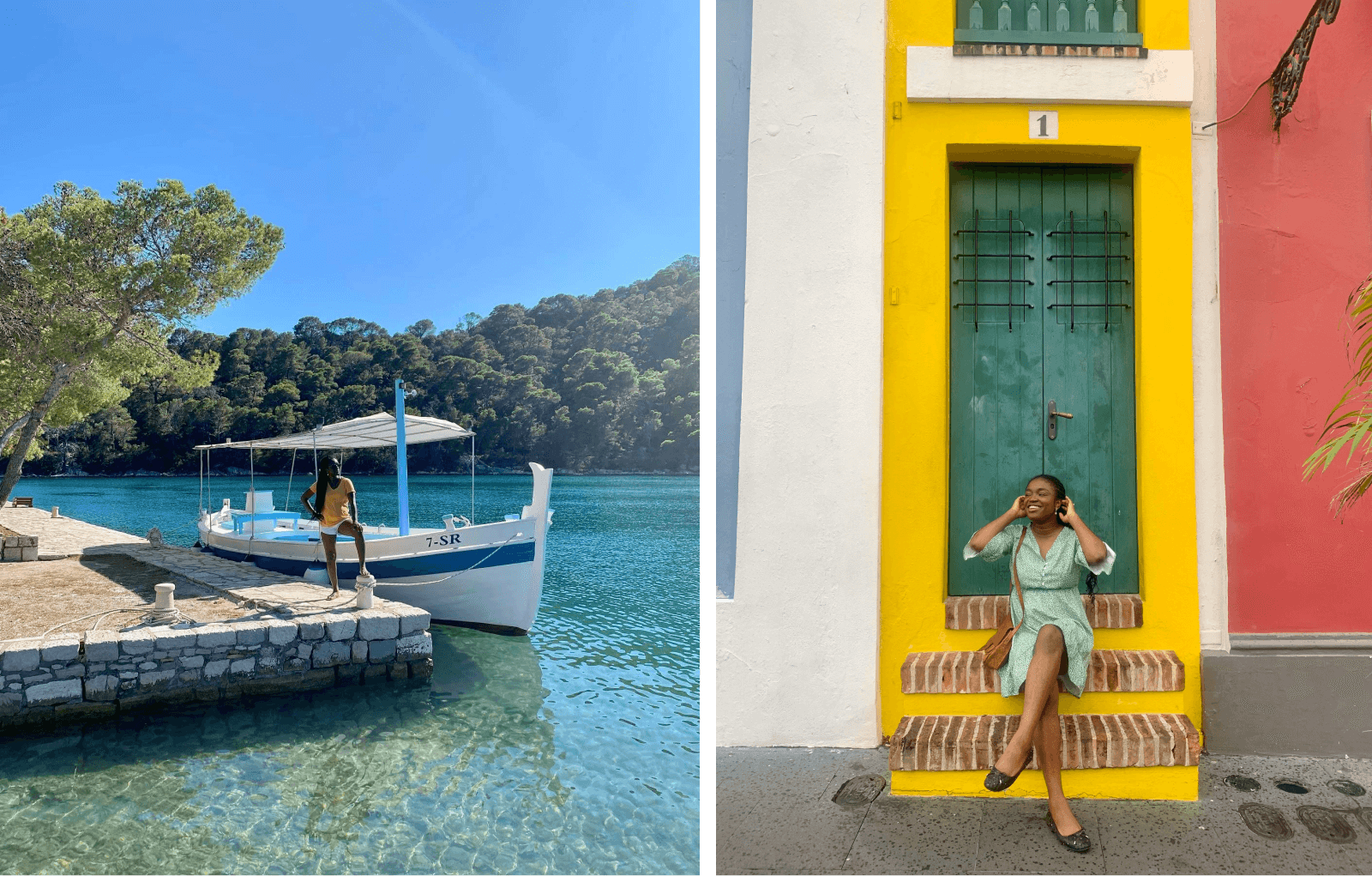
As a travel blogger, is it possible to earn income solely through Pinterest without maintaining a blog?
Also, is it able to incorporate affiliate links directly into Pinterest posts?

Absolutely, yes! You can indeed create what we call “affiliate pins”, which are pins for an affiliate program that you’re a part of or a product that you’re promoting. Furthermore, these pins can be directly associated to your affiliate link. This method can be used to generate sales.
However, this approach generally works best for lower-cost items that people might buy on impulse.
For a $1,000 program, for instance, people likely need more information, reviews, and in-depth details to make a decision. But for products priced around $50 to $99, selling directly on Pinterest is easier.
I have used Pinterest to sell affiliate programs, such as web hosting, and courses that are considered lower ticket offers. So, generating income from Pinterest without having a blog is certainly feasible. I’ve done it myself!
I have one final question for you. Reflecting on your journey, what significant piece of advice would you have given to yourself when you first embarked on your blogging career?

That’s an excellent question! If I could advise my younger self, I’d say: “Invest in yourself.” At the start of my journey, I took a Nomadic Matt blogging course and then spent a considerable amount of time trying to build everything on my own from scratch.
I didn’t initially see the value of hiring a virtual assistant or getting help with my website. So, if I could go back, I would tell myself to seek as much support as possible instead of trying to navigate everything alone.
For instance, it took me a good four months to set up my website (a task someone else could have easily assisted me with). I felt compelled to figure things out independently, take classes by myself, and learn everything on my own. There are so many resources out there and so much assistance available. I wish I had realized this earlier.
I’d also tell myself to focus on one thing at a time. I remember a phase during which I was juggling Pinterest, brand collaborations, online courses, and more all at once, which led to a loss of focus. This approach slowed things down until the pandemic hit. In that moment, I was forced to concentrate because travel came to a standstill, and I had to find ways to generate income.
However, I believe that focusing on one thing at a time and excelling at it is better than attempting to do multiple things simultaneously. So, if you’re going to concentrate on Pinterest, just do that. If you want to focus on brand collaborations, go all in. If you prefer working with clients, then devote your energy there.
I would also encourage my younger self to take risks. I played it safe with my content in the beginning, and it wasn’t until I started sharing my opinions and perspectives that I began building a following and attracting more readers. I began creating content that resonated with women of color and black travelers, which is when I saw real growth in my traffic and email list subscriptions.
So, take chances, invest in yourself, and don’t hesitate to hire help and seek the support you need from the outset. The more support you have, the faster you’ll grow!
